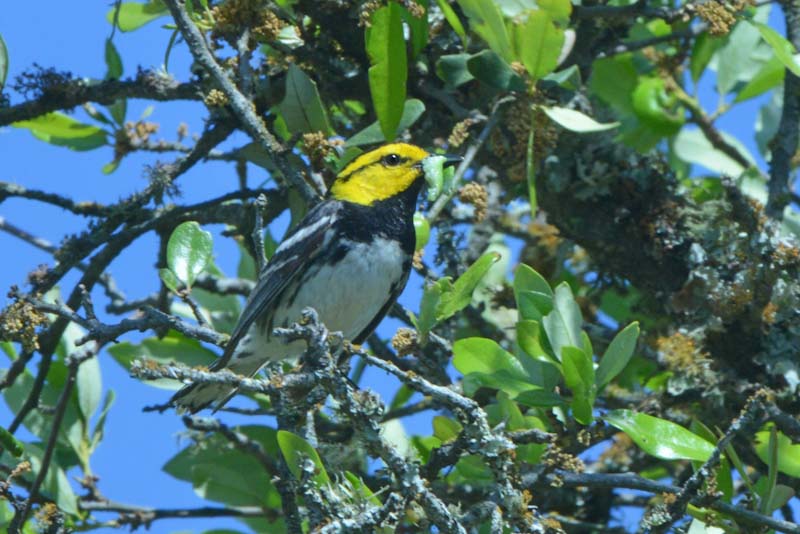
Photo and Commentary ©2023 by Robert Howson
Tuesday, May 30, 2023
“War makes strange bedfellows” plays upon our fascination with the ironic. We recognize the truth in the saying as we look back over the strange alliances that have been made by our own country throughout our history. It also has something to say about the fickleness of mankind.
The statement was never more true than in the case of the Golden-cheeked Warbler and the United States military machine. This most unusual coalition began as a result of World War II and the creation of Fort Hood military base just north of Austin, Texas. The base currently supports 371,000 people, of which some 50,000 are soldiers who train there.
The 340 square miles that make up the base also contain prime habitat of the Golden-cheeked Warbler. This would be of little consequence except the warbler is an endangered species that breeds only in a limited area in Texas. It is an extreme habitat specialist which must have the bark of mature Ashe Juniper to build their nests, and you guessed it, the base is one of the few areas that grows this plant upon which the warblers are so dependent. As a result, since 2008 directives have been issued preventing the firing of artillery or use of chemical or smoke grenades within 328 feet of habitats during nesting periods. Also, training has been limited to a two-hour period in habitat while the warblers are nesting.
In Scripture we find repeated warnings to Israel against making alliances with pagan nations surrounding them. The reason for this was twofold: God wanted them to depend upon Him rather than upon changeable humans, and secondly, He recognized the likelihood of them becoming like those nations they were linked to. The Faith Chapter gives this approval to Moses for following God’s directive: “He preferred sharing the burden of God’s people to enjoying the temporary advantages of alliance with a sinful nation.” (Hebrews 11:25 J.B. Phillips New Testament) It takes a wise individual to determine when and when not to establish bonds.
